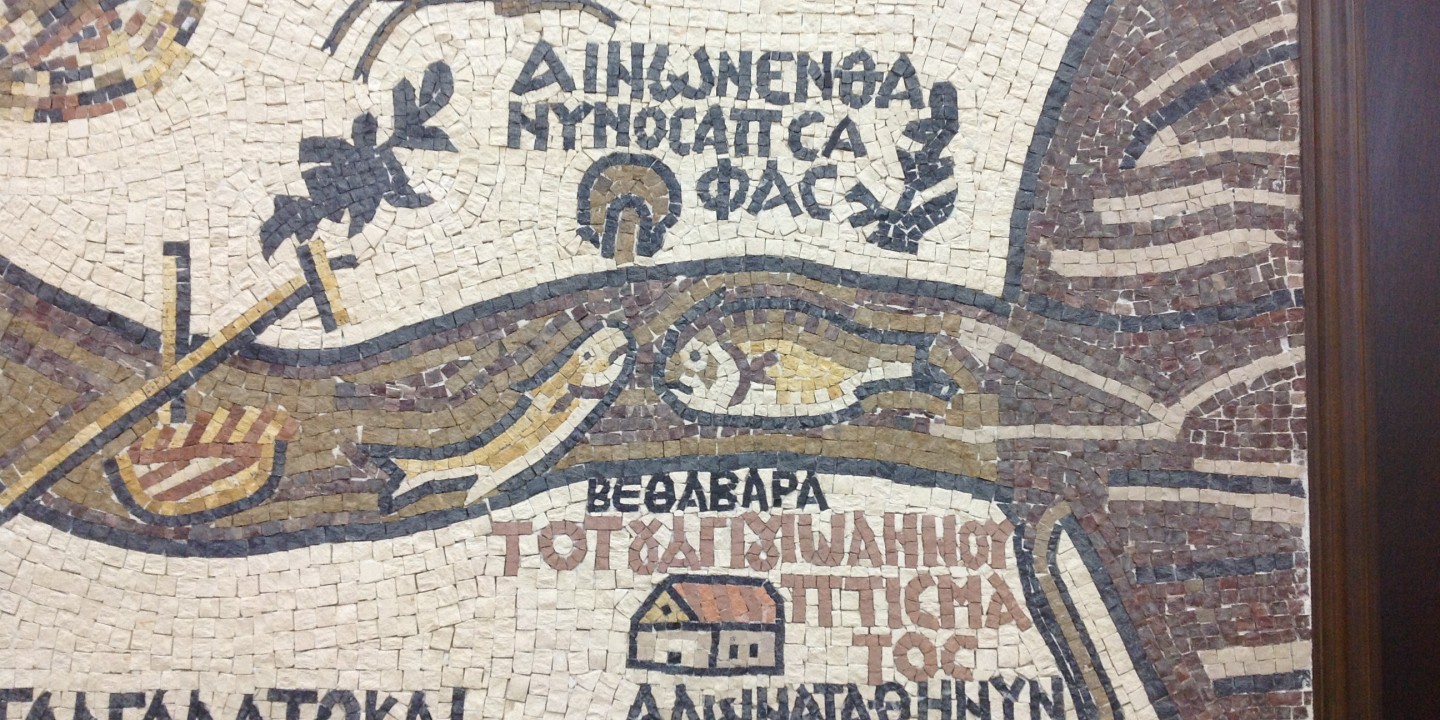
I lost my diamonds in the Dead Sea.
That’s a sentence I never thought I’d utter. And it turns out not to be true. But for a while, I thought I’d lost my diamonds in the Dead Sea. The diamonds that adorn my wedding ring are so small that when I emerged from the water of the Dead Sea after having covered myself in mud, as tourists do, I looked down at the ring and noticed with some alarm that it appeared very different. The sparkle was gone. I panicked.
Did the diamonds corrode off? Were they floating (or sinking) somewhere in that vast ancient sea? After thinking about it a moment, calculating how much it would cost to replace the wedding ring, I began to imagine those tiny diamonds floating off into the water and taking on new life there. And I found the thought strangely comforting. They’d come from the ground; let them go back to the ground. Earth to earth; dust to water.
Later, after rinsing the ring more thoroughly, I realized that the diamonds hadn’t really fallen off. They’re just so small that they’d been hidden by the mud that had gotten lodged in the crevices between them. But it wasn't entirely irrational to think that the Dead Sea could corrode the diamonds off of a ring. Because it’s composed of 31% salt—nine times as salty as the oceans—it’s unable to sustain living creatures (although a few species of bacteria were recently discovered near fissures at the bottom of the sea that are fed by underground springs). In the Bible, the Dead Sea (in the dry, low-lying region called “the Arabah”) is associated with desolation. It’s a place where you wish your enemies would go.
In the sixth century mosaic of the Holy Land that adorns the floor of St. George’s Greek Orthodox church in Madaba, Jordan, there’s a fish swimming against the current in the Jordan River, struggling to move away from the Dead Sea. Madaba is famous for its mosaics, but it also has one of the highest concentrations of Christians in Jordan, which is on average 92% Sunni Muslim. It’s easy to imagine that being Christian in a predominantly Muslim country would feel like swimming against the current. But as Father Nabil Haddad, founder of the Jordanian Interfaith Coexistence Research Center, explains, relationships between Christians and Muslims are currently quite good, and being Christian doesn’t feel like being a minority. “Christians have lived here for 2000 years, and we will continue to live here forever. This is our calling. It’s our holy legacy.”
Perhaps being Christian in Jordan is like being a diamond floating in a vast, salty sea. And the remarkable thing about the waters of the Dead Sea is that they heal: that’s why tourists slather themselves with the mud that the sea provides. I imagine that being Christian in a predominantly Muslim country may have a similar healing effect on the faith. The water doesn’t actually dissolve the diamonds; if you stay in long enough, it cleanses them so they can shine more brightly. One Bedouin Christian has put it this way: “When Christianity spread to Rome, it became an institution. When it spread to Europe, it became a culture. When it spread to America, it became a business. In the Middle East, Christianity is about relationships.” Not just relationships within the faith, but generous and open relationships between Christians and Muslims, like the kind Father Haddad cultivates.
In those moments by the Dead Sea when I thought I'd lost my diamonds, I remembered the moment I first wore them, the day of my wedding. Then I recalled that one of the readings we chose for the service was Ezekiel 47:1-12, in which water from the temple in Jerusalem flows into the Dead Sea:
This water flows toward the eastern region and goes down into the Arabah; and when it enters the sea, the sea of stagnant waters, the water will become fresh. Wherever the river goes, every living creature that swarms will live, and there will be very many fish. . . . On the banks, on both sides of the river, there will grow all kinds of trees for food. Their leaves will not wither nor their fruit fail, but they will bear fresh fruit every month, because the water for them flows from the sanctuary. Their fruit will be for food, and their leaves for healing.
Perhaps, then, the healing works both ways: Muslims can help heal Christians and Christians can help heal Muslims, so long as we regard one another with generosity and openness, rooted in the God who nourishes us all.
Disclosure: The Jordan Tourism Board covered most of the expenses for my trip to Jordan, but all of the impressions and opinions in this blog are my own.






